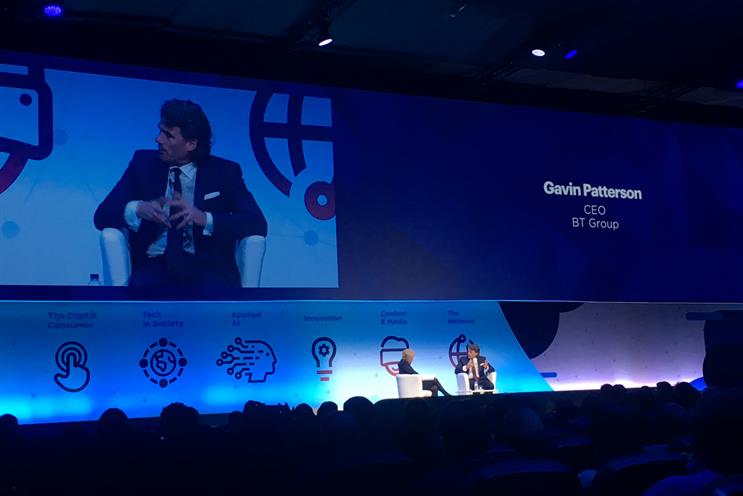
"TV dramas and shows have increasingly moved towards a global marketplace, and Netflix and Amazon have become real players... as a provider that's really only focused on the UK, and the 65 million people who live there, we can't compete for the biggest new dramas in the same way that Netflix and the US studios can," Patterson, pictured, said.
However, as a network operator that does not have to "try to defend a pay-TV bundle the same way others are", competing with Netflix is not a priority for BT.
"We're a super aggregator of content. One place we can all come together and with a nice clean easy to use customer interface," Patterson said. "We even care about things like billing, the service and the product experience with selective exclusive content - that's the focus.
This is why BT has been such a strong investor in the sports the British public care most about.
'While we are happy to aggregate and resell general entertainment, sports is different. Sports is still focused on the country itself and the strength of the relationship any range of sports has with the local audience, so with sports we take a different approach," Patterson said.
Not only does BT fight to license rights in sports such as football and rugby, it strives to demonstrate that it can deliver that content better than any other provider, he continued.
"This is best demonstrated in the Champions League Final last year, which we were host broadcaster in Cardiff," Pattersons said of the match that was broadcasted in 360-degree video. "We demonstrated how much innovation you can bring to bear if you link tech to content. We had 87 cameras there."
With new technology, and this includes AI, robots and machine learnings, Patterson believes the key to survival is embracing it.
"There's no way of slowing it down and pretending it doesn't exist. We won't be able to stop it. My view is we need to embrace it. But the most important thing to do is ensure that the entire population can benefit from it. This ranges from making sure people have lifelong learning so they have the skills to compete as more jobs are automated, to figuring out how tax revenue will be generated. How we can use tech to make the world a good place to live," he concluded.




.jpg)
.jpeg)
